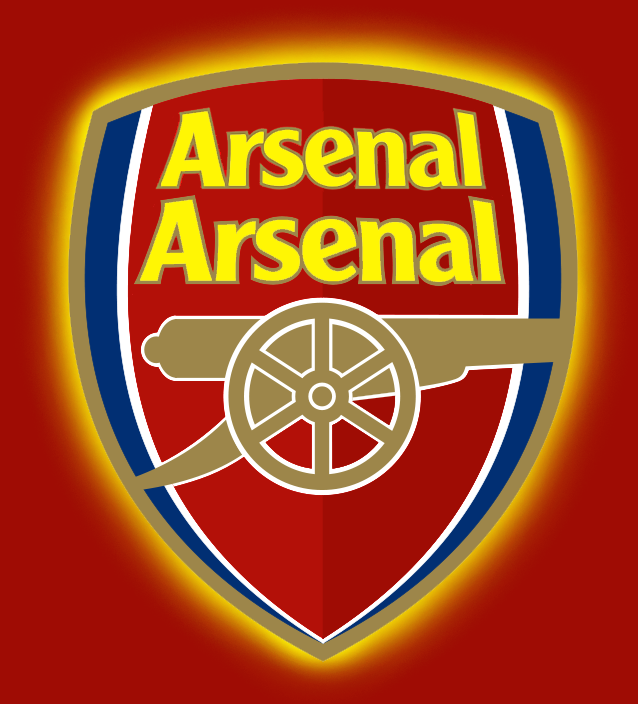On May 2nd the four players with the most club appearances for Arsenal were profiled, between them they played in an incredible 2.631 games.
David O’Leary 1973-1993 made 722 appearances.
Tony Adams 1983-2002 made 669 appearances.
George Armstrong 1961-1977 made 621 appearances.
Lee Dixon 1988-2002 made 619 appearances.
Now we will take a look at the next four players with the highest amount of appearances, they are the only players to have played in between 500 and 599 games.
First up we have Nigel Winterburn 1987-2000 he made 584 appearances.
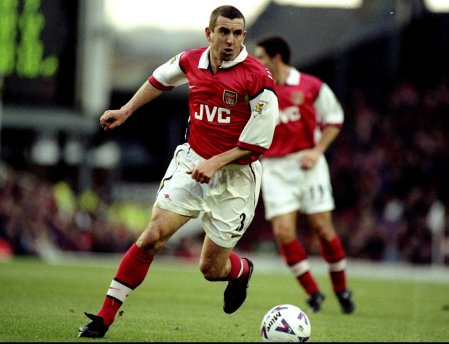
Winterburn began his Arsenal career at right-back, an emergency measure employed by Graham after he’d been unsuccessful in finding a worthwhile replacement for Viv Anderson. Though heavily left-footed, Winterburn settled into the right back role as best he could and became quickly involved in two controversial incidents of his first season. First, he was seen to openly goad Brian McClair after the Manchester United striker had missed a late penalty in an FA Cup tie at Highbury.The second incident came in the League Cup final later that same season. Despite having fallen behind in the early stages, Arsenal, the holders, dominated the match and were leading Luton Town 2–1 at Wembley with less than quarter of an hour to go when David Rocastle was felled in the penalty area. Michael Thomas had been Arsenal’s designated penalty taker all season but for reasons unexplained, it was Winterburn – who’d never taken a penalty for Arsenal before – who collected the ball up to take the kick.
He put the kick low and strong to the right hand corner as he viewed it, but Luton goalkeeper Andy Dibble guessed correctly and pushed the ball round the post. A newly-inspired Luton then scored twice in the final ten minutes and won the final 3–2. Despite the missed penalty, it was Gus Caesar (deputising for David O’Leary who missed the final due to injury) rather than Winterburn who was made to bear the brunt of the criticism, as he had made the error which gifted Luton their equaliser at 2–2.
Sansom left Arsenal in the summer and Winterburn settled into his more familiar left back role as a result, staying in it for more than a decade. He and fellow full back Lee Dixon flanked two superb central defenders in captain Tony Adams and veteran David O’Leary, joined during the 1989 season by Steve Bould. Often the manager would play all five of them as Arsenal took holders Liverpool to a last-game showdown at Anfield for the First Division title, which would have been Arsenal’s first title since the Double year of 1971. Arsenal’s situation meant they needed to win by at least two clear goals to clinch the championship. Winterburn’s free kick set up a first for Alan Smith shortly after half time, but the second looked as though it would elude them until Thomas scored in injury time. This victory was the culmination of the film Fever Pitch.
Arsenal ended 1990 trophy less, but went on to win the league title again the next year, with only one loss. Two years later, Winterburn was in the Arsenal team which won both cup competitions and thus completed his domestic set of medals. Arsenal defeated Sheffield Wednesday 2–1 in both the League Cup and FA Cup finals, the latter in a replay.
Arsène Wenger arrived at Arsenal at the end of 1996 and instilled new self-awareness and dietary habits into the Arsenal squad, allowing the ageing defence (Adams was the youngest at 30 years of age; Martin Keown had also arrived to account for O’Leary’s retirement after the 1993 FA Cup success) to thrive in the latter years of their careers and prolong their football careers. Arsenal won the “double” of Premiership and FA Cup in 1998.
Secondly we have David Seaman MBE – 1990-2003 he appeared in 564 games.

Arsenal manager George Graham signed David Seaman from Queens Park Rangers in 1990 for a fee of £1.3 million; at the time a British record for a goalkeeper. Arsenal sold goalkeeper John Lukic, who was highly popular amongst Arsenal fans, to Leeds United.
Seaman’s time at Arsenal coincided with one of the most successful periods in the club’s history. The 1990–91 season saw him concede only 18 goals when playing in every match of the 38-game season as Arsenal regained the league title.
Arsenal won both the FA Cup and the League Cup in 1993 and supplemented this a year later with the European Cup Winners’ Cup.
In 1995, George Graham was sacked, and Arsenal came close to becoming the first club to retain the Cup Winners’ Cup, with Seaman earning a reputation as a penalty-saving specialist after saving Attilio Lombardo’s shot in Arsenal’s semi-final shoot-out against U.C. Sampdoria. However, in the final Arsenal lost in extra time to Real Zaragoza, with a spectacular last-minute goal from Nayim from 45 yards out catching Seaman off his line. There were only seconds left of extra time when Seaman conceded.
In August 1996, Arsène Wenger became the new manager of Arsenal. Wenger rated Seaman highly and in 1998, Seaman helped the team to the Premier League and FA Cup double. In 1998–99, Seaman played all 38 league matches, conceding only 17 league goals as Arsenal came within one point of retaining the Premier League and lost in the FA Cup semi-finals to Manchester United. The following season Seaman managed to reach the 2000 UEFA Cup Final, which Arsenal drew 0–0 with Galatasaray, but lost on penalties.
In 2002, Seaman won the Premier League and the FA Cup again to complete his second career double, although Arsenal’s other goalkeepers Stuart Taylor (10 appearances) and Richard Wright (12 appearances) also won championship medals, due mainly to Seaman’s absence through injuries. A highlight of this season was when Seaman dramatically saved a Gareth Barry penalty as Arsenal won 2-1 at Aston Villa.
Despite his international career ending so flatly and accusations his mobility had faded with age, the 2002–03 season—Seaman’s last at Arsenal—ended on a high note. In the FA Cup, he made a spectacular save against Sheffield United’s Paul Peschisolido in the semi-finals, in what former Manchester United goalkeeper Peter Schmeichel, a pundit for the BBC on the day, dubbed “the best save I’ve ever seen”. Arsenal were defending a 1–0 lead, when with less than ten minutes to go, Peschisolido had a header towards an apparently open goal from six yards out with Seaman seemingly stranded at the near post. However, the goalkeeper leapt sideways and backwards, somehow managing to stretch his right arm behind him and scoop the ball back and away from both his goal and the opposing players ready to pounce on a rebound. The match was all the more remarkable in that it was Seaman’s 1,000th professional career game. Seaman went on to captain the team during the 2003 FA Cup Final in the absence of injured Patrick Vieira and keep another clean sheet at the Millennium Stadium as they defeated Southampton 1–0. His final act with Arsenal was to lift the FA Cup, which was his eighth major trophy with his team.
David became an MBE in 1977 – unfortunately GN5 could not find an image of the presentation.
Thirdly we have Pat Rice MBE – 1964-1980 he made 528 appearances.

Born in Belfast, he grew up in London, and after working at a greengrocer on Gillespie Road he joined the Gunners as an apprentice in 1964. He turned professional in 1966 and worked his way up through the club’s youth and reserve teams. He made his first-team debut in the League Cup against Burnley on 5 December 1967.
Playing at right back, Rice was initially a bit-part player, making only 16 appearances in his first three seasons at Arsenal, and missed out on Arsenal’s 1969–70 Inter-Cities Fairs Cup win over RSC Anderlecht. Peter Storey was Arsenal’s first choice right back, but after he was moved into central midfield at the start of the 1970–71, Rice took his place and was a near-ever present in the side that season, as Arsenal won the League and FA Cup Double.
He remained first-choice right back for the rest of the 1970s, playing in the 1972 FA Cup Final as well; he was an ever-present for three seasons — 1971–72, 1975–76, 1976–77. Of the Double-winning side, he was the one who remained at the club the longest, and became club captain in 1977. As captain, he had the honour of lifting the FA Cup after Arsenal beat Manchester United in 1979, as well as losing two finals in 1978 and 1980. He is one of only 3 Arsenal players to have played in five FA Cup Finals (1970–71, 1971–72, 1977–78, 1978–79, 1979–80), the other two being David Seaman and Ray Parlour. He also led Arsenal to the 1980 UEFA Cup Winners’ Cup Final, which Arsenal lost on penalties to Valencia. He finally left Arsenal in 1980 at the age of 31, by which time he had played 528 games in total for the club.
Pat rejoined Arsenal in 1984 as youth team coach, a post he held for the next 12 years, winning the FA Youth Cup twice in 1987–88 and 1993–94. In September 1996, he was briefly caretaker manager of the club after the resignation of Stewart Houston, who himself was caretaker after the sacking of Bruce Rioch. He managed the side for three FA Premier League matches (all of which Arsenal won) and a 3–2 defeat in the UEFA Cup at home to Borussia Mönchengladbach.
Upon the arrival of Arsène Wenger at the end of the month, Rice became his assistant, and played a key role in helping the club to their success in the 1990s and 2000s, including the Doubles of 1997–98 and 2001–02, and Arsenal’s unbeaten League season of 2003–04. He holds the distinction (along with Bob Wilson) of having taken part, as player or coach, in all three of Arsenal’s Doubles.
On 5 May 2012, it was announced that Rice would be stepping down after an accumulative 44 years with club, since joining as an apprentice, with the home game against Norwich being his final home game as Arsenal No.2. Wenger stated, ‘Pat is a true Arsenal legend and has committed almost his whole life to Arsenal Football Club, which shows huge loyalty and devotion to this club…I will always be indebted to him for his expert insight into Arsenal and football as a whole. On the training pitches and on matchdays, Pat has always been a passionate, loyal and insightful colleague, who we will all miss.’
Rice was appointed Member of the Order of the British Empire (MBE) in the 2013 New Year Honours for services to sport.

Last but not least we have Peter Storey 1961-1977 who played in 501 games.

Storey signed as an apprentice at Arsenal after leaving school in 1961. He signed professional forms in September 1962 and spent the 1962–63 season playing for the Arsenal third team in the Metropolitan League. He made his senior debut on 30 October 1965, taking Billy McCullough’s place at left-back in a 3–1 defeat to Leicester City at Filbert Street. He retained his first team place and went on to play all of the remaining 29 games, though the season would prove to be a poor one for the “Gunners” as manager Billy Wright was sacked after dropping top-scorer Joe Baker and disillusioning the dressing room. In 1965-66 Arsenal finished in 14th place, just four points above the relegation zone, and was knocked out of the FA Cup at the Third Round following a 3–0 defeat to Blackburn Rovers, who would end the season bottom of the First Division.
Storey quickly made a name for himself as a rough player early in the 1966–67 season as he injured Manchester City winger Mike Summerbee. He was warned by new manager Bertie Mee not to get sent off after Storey got involved in a brawl during an FA Cup win over Gillingham. The team improved under Mee’s strict leadership, and finished the season in seventh place, cutting goals conceded to 47 from the previous season’s tally of 75. Storey started 34 league games, missing eight matches due to injury and illness. He scored his first professional goal on 22 April 1967, in a 1–1 draw with Nottingham Forest at Highbury.
Bob McNab established himself at left-back in the 1967–68 season, and so Storey was moved over to right-back. Despite being a full-back he was sometimes given the job of marking a dangerous and creative opposition player closely, and though he was never ordered to use rough play he was on these occasions told “you know what to do, Peter”. He was sent off for the first time in his career, along with Frank McLintock, in a 1–0 defeat to Burnley at Turf Moor in December 1967; despite his tough tackling he was actually dismissed for bad language. Arsenal finished the season in ninth place, but advanced past Coventry City, Reading, Blackburn Rovers, Burnley and Huddersfield Town to face Leeds United in the final of the League Cup at Wembley. Leeds won the game through a Terry Cooper volley on 20 minute.
Their league position meant in 1968–69 that Arsenal qualified for the Inter-Cities Fairs Cup in the 1969–70 season, and they advanced past Glentoran (Northern Ireland), Sporting (Portugal), Rouen (France), FCM Bacău (Romania) and Ajax (Netherlands) to reach the final against Belgian club Anderlecht. Anderlecht won 3–1 at the Constant Vanden Stock Stadium after their possession football controlled the entire game until substitute Ray Kennedy scored a crucial header in the 82nd minute. Arsenal turned around the tie with a 3–0 home victory to claim the club’s first trophy in 17 years. Despite their European exploits the team still struggled in England, and finished the league in 12th spot.
Arsenal won the 1970-71 title on the final day of the season with a 1–0 win over Spurs at White Hart Lane, though Storey missed the final two league games of the season after damaging ligaments in his ankle. They secured the double after winning the FA Cup, though their progress in the competition was slow, as they beat Yeovil Town, Portsmouth (in a replay) – Storey scored a penalty in both the original tie and the replay, Manchester City, Leicester City (in a replay), and then Stoke City (in a replay). Storey gave a man-of-the-match performance in the original semi-final tie against Stoke at Hillsborough, scoring two goals to rescue a 2–0 half-time deficit; with the first goal he beat Gordon Banks with a volley on the edge of the penalty area, and with the second he sent Banks the wrong way with an injury-time penalty kick.[27] The replay at Villa Park was less dramatic, and Arsenal won the tie with a comfortable 2–0 result. In the final he was assigned to mark Liverpool’s Steve Heighway, and kept the Liverpool winger quiet until Storey was substituted for Eddie Kelly after 64 minutes. Both Heighway and Kelly scored in extra-time, but the winning goal came from “Gunners” striker Charlie George.
He played his final game for Arsenal on 29 January 1977, replacing Malcolm Macdonald as a substitute in a 3–1 victory over Coventry City in the FA Cup.
In his auto biography he wrote:
In time, I became immensely proud of what Arsenal achieved in 1970–71, constantly defying the odds and coming from behind. Only special teams do the Double. One word summed us up — remorseless. We never knew when we were beaten; our powers of recovery during 90 minutes, and sometimes beyond, were immense.”
GunnerN5
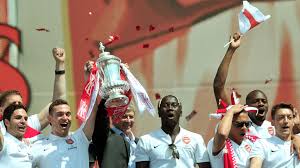

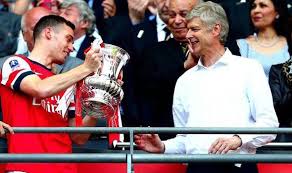



 Posted by peachesgÖÖner
Posted by peachesgÖÖner 







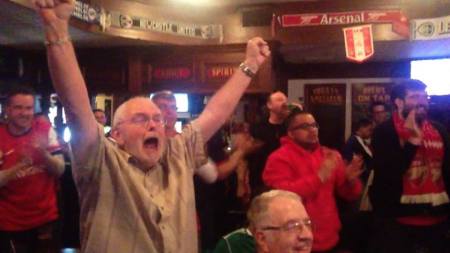


 Arsenal News 24/7
Arsenal News 24/7